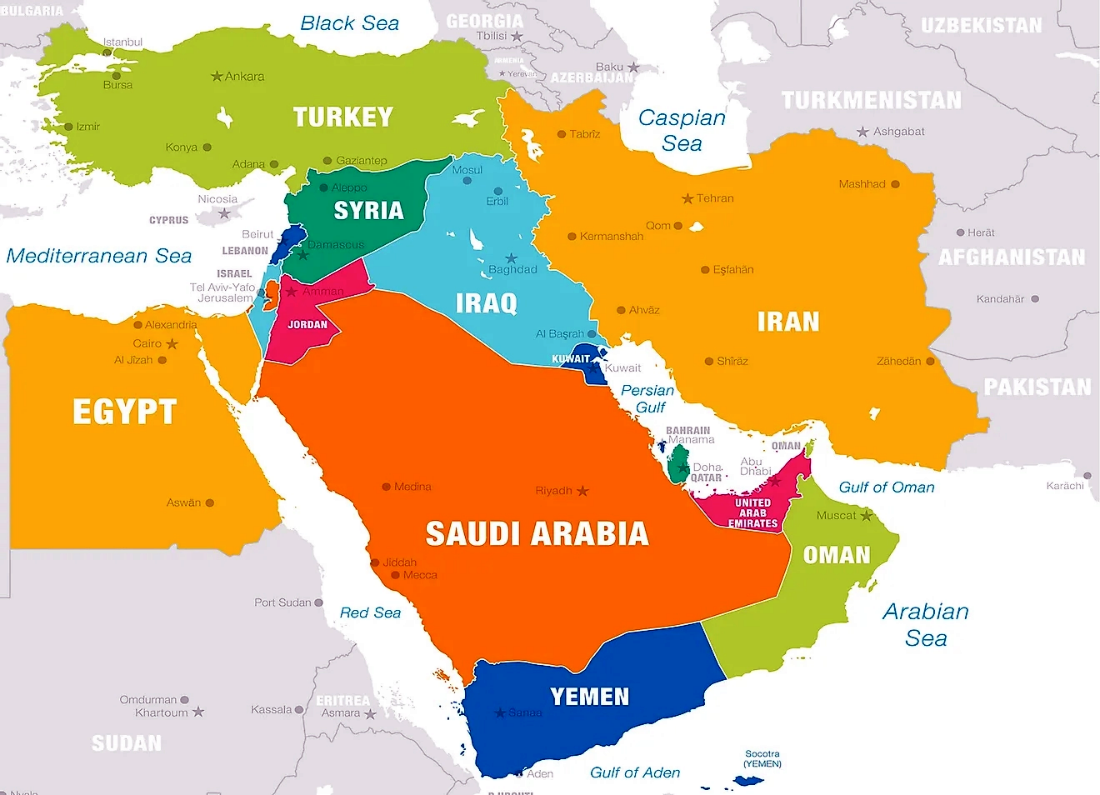-
16 Jul 2022
GS Paper 1
History
Day 6: What is the extent to which peace settlements have been successful in the Middle East? In light of the Oslo-to-Abrahim Accords, examine the statement. (250 Words)
- Introduce in brief the establishment of Israel and related issues.
- Discuss the circumstances which led to the signing of Oslo and Abraham accord and also talk about whether the objectives of accord are realised or not.
- Conclude suitably.
Answer
The United Nations General Assembly on 15 May 1947 created the Special Committee on Palestine (UNSCOP) to make recommendation for partition of land of Palestine between Arabs and Jews (Israel).
On 29 November 1947, the General Assembly passed Resolution 181 (commonly known as the UN Partition Plan for Palestine) and created separate nation for Arabs and Jews. The resolution was rejected by the Palestinian Arabs.
Arab countries and Israel had fought several wars like the 6-day war 1967 (Israel defeated joint forces of Iraq, Syria, Egypt, Jordan and Lebanon), Yom Kippur war 1973 (Israel defeated joint forces of Egypt and Syria).
Oslo Accord: It was called the Declaration of Principle and also known as Oslo Peace Accord.
- To bring peace in the middle east and in Israel’s neighbor Palestine Liberation Organisation (PLO) and Israel signed the Oslo accord in Oslo, the capital of Norway. It led to:
- PLO recognise Israel
- PLO promised to give up terrorism and PLO got self-rule in the West Bank and Gaza strip and Israel withdrew its troops from this area.
- The question of Jerusalem was left undecided under the Oslo accord.
The Accord was signed in the hope of peace but things haven't changed very significantly.
Some of the developments challenges the peace aspect of the Accord like:
Palestine had launched second intifada (Campaign of Civil Disobedience) against Israel called Al-Aqsa intifada and used a new weapon of suicide bomber.
In 2006, Hamas, a militant terrorist group intent on replacing Israel with Islamic state, won majority control in Palestine Authority elections but Israel refused to recognised new government.
To end the hostility among Israel and its neighbors the Abraham Accord was signed.
- The Abraham Accord between Israel, the United Arab Emirates and Bahrain is mediated by the USA. It is the first Arab-Israeli peace deal in 26 years.
- Egypt was the first Arab State to sign a peace deal with Israel in 1979.Jordan signed a peace pact in 1994. As per the agreements,
- The UAE and Bahrain will establish:
- Embassies and exchange ambassadors.
- Working together with Israel across a range of sectors, including tourism, trade, healthcare and security.
- The Abraham Accords also opens the door for Muslims around the world to visit the historic sites in Israel and to peacefully pray at Al-Aqsa Mosque in Jerusalem, the third holiest site in Islam.
The possible outcome of the Abraham accord:
- Other gulf states in the region like Oman could follow suit and sign similar agreements with Israel.
- One of the biggest Gulf Arab powers, Saudi Arabia could follow the suit as well.
Although both the Accords were signed in noble intent there are various drawbacks as well:
- The Palestinians have not embraced the USA’s vision and hold very adverse views about the Accord. 86% of Palestinians believe the normalisation agreement with the UAE serves only Israel’s interests and not their own.
- There is a possibility that the Palestine quest is further ignored and terror activity may increase in the region.
- Shia-Sunni rifts in the region may get wide and violent.
- Saudi Arabia (Sunni) and Iran (representing Shia) have a long history of enmity. For decades, one of the main sources of instability in West Asia has been the cold war between Saudi Arabia and Iran.
- The Sunni-Shiite schism may also provoke violence between Muslims in such places as Pakistan, Nigeria and Indonesia.
- Very Neighbours of Israel are not included in either of the accord like Lebanon, Jordan and Syria. And the violent struggle between them continued.
- USA’s unconditional backing to Israel on every issue and open support by tech and armed weapons led to more violent abuse of power and frequent terror episode.
The religious policies, aspiration of regional dominance and interference by international players led to instability in the region. For long lasting peace, local players of the region under the guidance of international institutions like the United Nation (UN) must extend cooperation and mutual benefits to their people.





